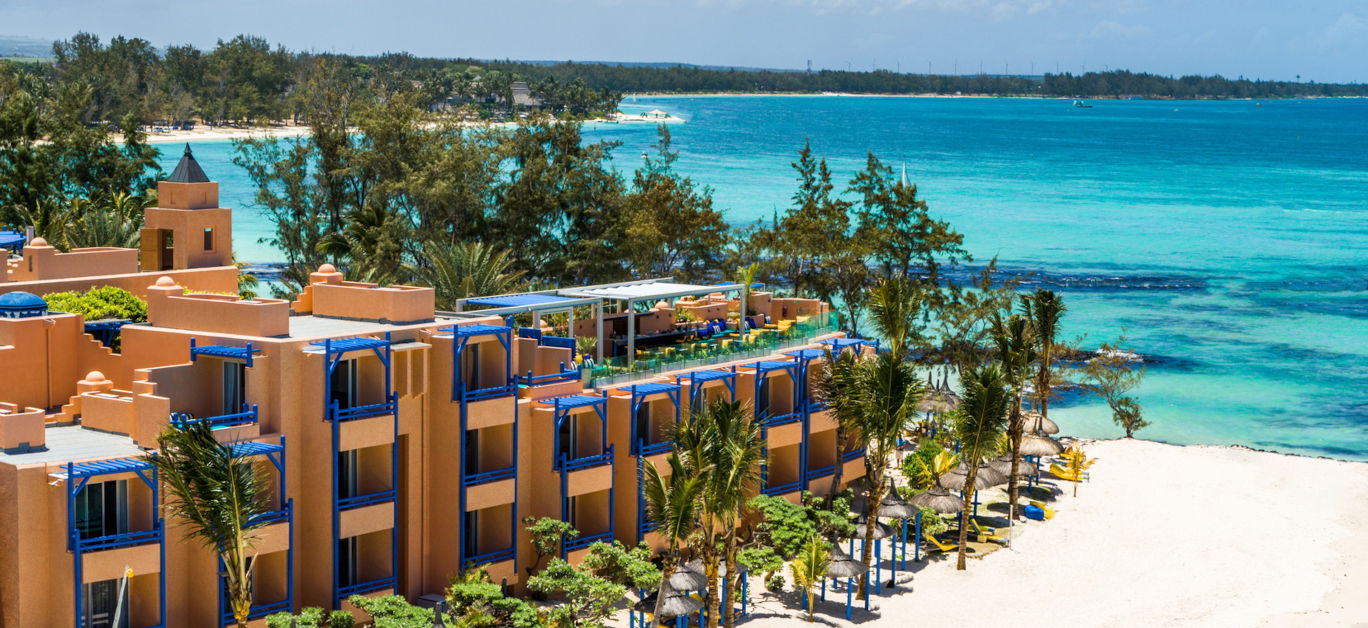Words by Joanna Lobo
There are hotels where sustainability is a buzz word, a trend. Then there are hotels like the luxurious SALT of Palmar, where sustainability is a way of life.
In 2018, the sandy beach of Palmar in Quatre Cocos, Mauritius saw the launch of SALT of Palmar, a luxury boutique resort championing all things local and sustainable. The first property under the SALT brand by The Lux Collective was named one of the World’s Greatest Places by Time Magazine after its launch. A deserving honour for a place that is focussed on everything homegrown and homemade.
It is at SALT that I find love, the silkiest, smoothest bathrobe made with organic cotton made from a fabric derived from coffee grounds! Sustainability, I realised here, is easy and luxurious.
Hotel
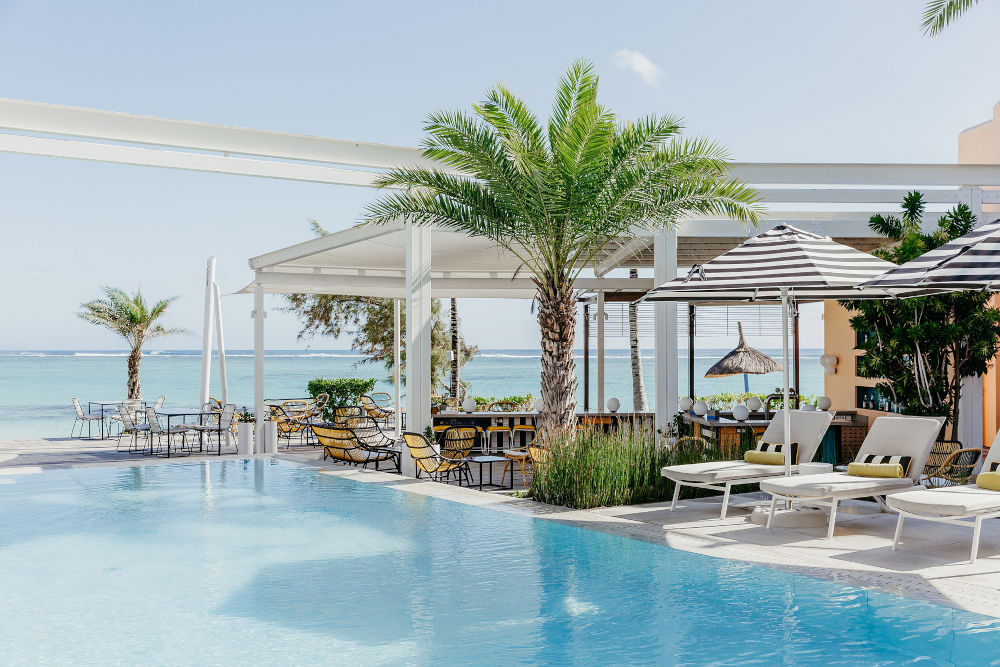
The adults-only boutique resort is beautiful, luxuriant and aces its hospitality. The resort is a safari of colours. Mauritian architect Jean‐François Adam designed the place to highlight the natural environment. Its minimalistic design allows natural light to stream in and illuminate water bodies and greenery everywhere. French designer Camille Walala did the interiors in bold pop colours to reflect the colours of the island.
The vibe is relaxed and playful. There are shaded spots with beanbags for reading – the library has over 300 books by Mauritian authors – perusing through the guidebook, or catching up on thoughts. In addition, there’s an infinity pool for morning swims, or the beach with soft sand and little eddies of water right out front for those seeking sea therapy.
Room
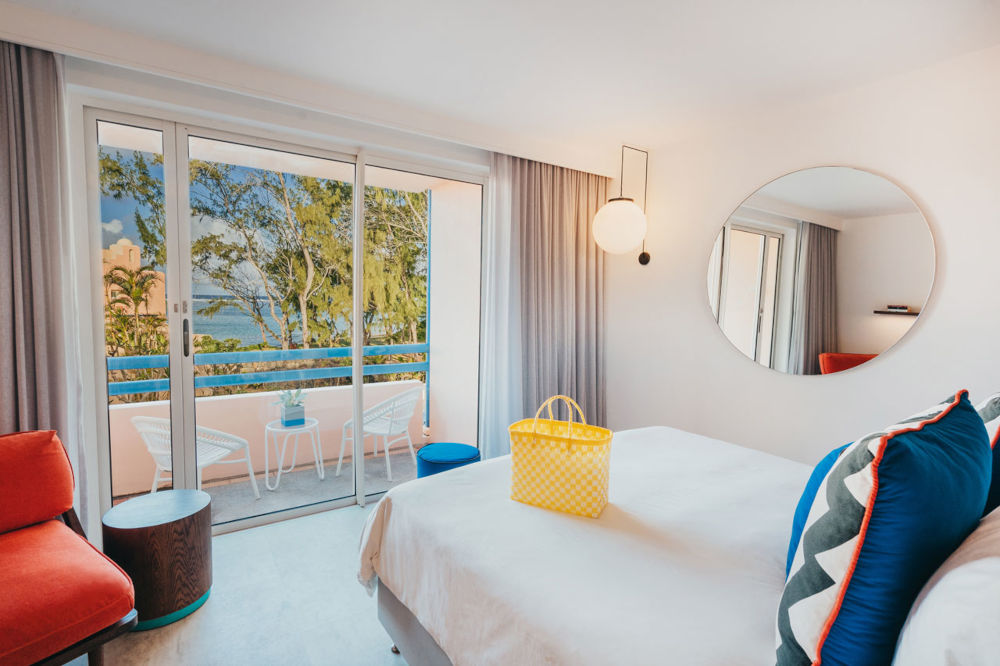
There are 59 rooms offering views of a pristine beach, the pool view, or the garden. The rooms are designed to maximise space and comfort — there’s minimal décor, and bright pops of colour in the furnishings and furniture. They are fitted with environment-conscious items like a beach basket woven from recycled plastic, rubber-soled cinnamon-sedge slippers and a recycled rubber yoga mat.
The toiletries have my heart. They reside in stoneware containers, they are chemical-free, 95% natural, and locally made. I used their in-house salt scrub to slough away my travel fatigue.
There’s no television or mini fridge, but there are paperbacks and travel guides, and a transistor radio. The view is part of the ‘entertainment’ and it does impress — my room looks out onto a deserted beach, shaded by palms, and with a stunning view of the sunrise.
Food and drink

On entry, guests are given a soothing welcome drink. Mine is a colourful and refreshing cordial of wild basil and the local citrus fruit, papeda with a dehydrated, salted and baked pineapple slice. The rooms are stocked with fresh, healthy snacks like taro or breadfruit crisps with seaweed salt and a selection of teas and freshly ground coffee, with paper filters, all stored in glass containers.
The Good Kitchen cooks food that is local, homemade, seasonal and zero waste, made with ingredients that are available within a three-kilometre radius. The food is Mediterranean-inspired, and healthy. I try the fish of the day, which is lightly cooked in oil and garlic and served with lemon wedges. Shrimp gets minced and forms the stuffing of the homemade chevrette croquettes.

A Buddha bowl packs in colour and healthy flavours, while the sweetcorn and kale fritters are addictive munchies. A Mauritian chicken curry gets served like a thali, with a piquant tomato chutney, a mango takkar (tangy like achaar), faratha and rice. Desserts either have draft beer and malt seeds as in the beer tart, roasted bananas with banana paper as in West Peak fayence, or the local Chamarel rum in the exotic baba.
SALT Bakery is where you go to find fresh bread (including a moist chocolate bread), sticky pastries and indulgent croissants.
There are three bars – on the rooftop, by the pool, and by the beach – each offering a different view, and cocktails inspired by the island’s mountains, made with local fruits and herbs, and homemade cordials and infusions. My favourite is the no smoke without fire, a cocktail I try at the rooftop bar, which is inspired by burning sugar cane fields during harvest season.
Spa
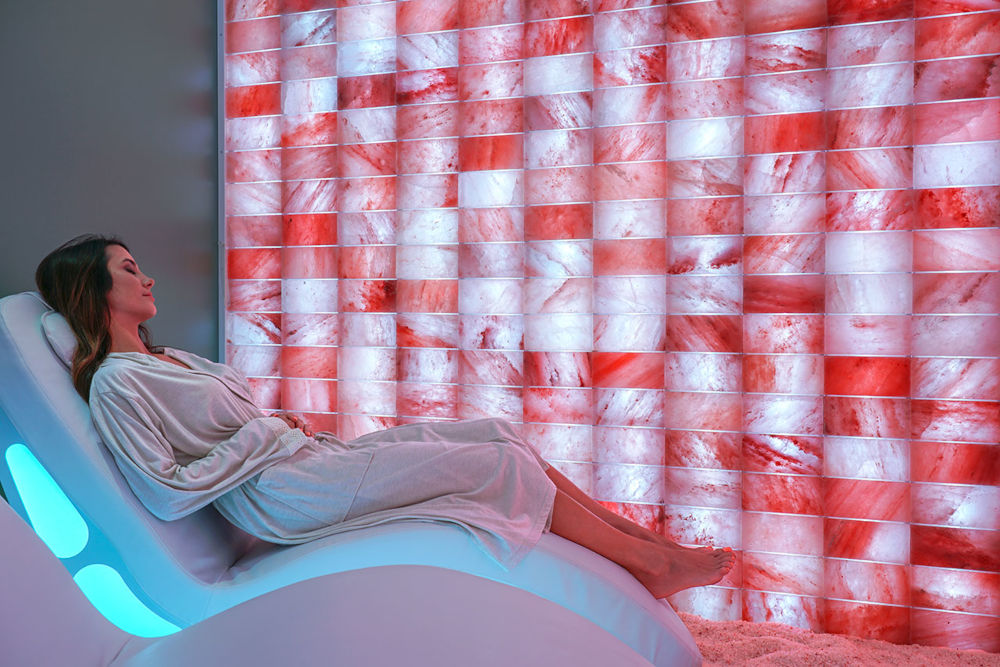
The highlight of the impressive spa is a salt room, a gorgeous white and pink creation designed to treat every first world ailment. The treatments here focus on different kinds of salt (Dead Sea salt, activated charcoal sea salt, Epsom salt, etc) that are used to relax, hydrate, and cool the body. Beyond the salt, I am allowed to add balms, wraps, oils and aromas to create a truly unique experience. The massages and therapies are also customised according to the person and their need.
To do
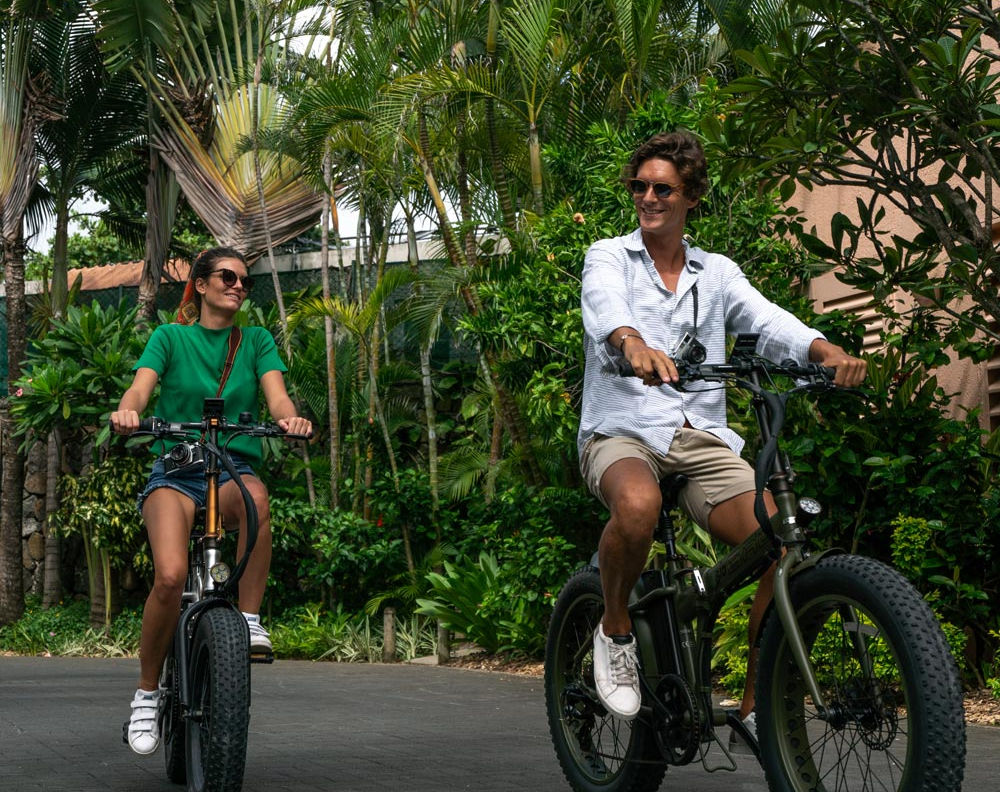
Being that close to the sea means there are a lot of water sports activities to undertake, from stand up paddleboarding to wind surfing. Tearing myself away from the amenities within SALT, I drove to Cape Malheureux, enjoying the changing coastline and passing by villages and sugarcane fields. I’m more inclined to safer water activities, so at Blue Safari, I took a dive in a submarine to explore the ocean floor, safely.
The resort itself is also dedicated to showcasing the local way of life, tying up with people across the island to offer experiences like hiking the Morne mountains, learning about life in the sugarcane fields, or about vanilla, or escaping to a tiny, private island.
In a nutshell
SALT is a boutique, luxury resort that takes its sustainability seriously. It’s the ideal destination for those seeking rest and rejuvenation, good food, spectacular sunsets and local experiences, without eco-anxiety.
Factbox
Rooms can be booked from £98 (slow season), and £129 per night.
Address: Coastal Road, Palmar Belle Mare, Mauritius, 41604
Phone: (230) 698 9800/ 698 2727
Website: saltresorts.com
Photography courtesy of SALT of Palmar












